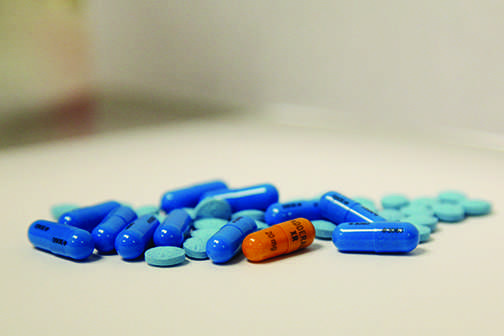We drink a lot of coffee — a not-so-unique self-assessment of college students — and the long lines at Big City Bagels and Starbucks prove it. With late-nights study sessions and finals creeping up around the corner, sipping on coffee at odd hours is nothing short of usual.
However, in recent months, reports of the dangers of high coffee consumption has been overshadowed by a tools much more severe: smart drugs.
The most common and popular “smart drug” is Adderall, also known as steroids for the academic world. It has become increasingly common among college students. For many students, it isn’t necessarily used to get high, but rather to act as an aid in studying and pulling all-nighters.
Recently, an undercover TODAY show intern reported within minutes of entering a university library, many students can easily find and purchase Adderall. The show further exposes college students and their dependency they on certain substances, mainly Adderall.
Although popular because of its ability to kick the attention span into a whole other gear, Adderall is usually used to treat attention deficit hyperactivity disorder and narcolepsy, and it reports high levels of addiction, making it a dangerous choice for a study aid for those who do not hold a prescription for it.
However, a substitute called “Study Buddy,” recently came on the market and is being sold in vending machines as close by as California State University, Long Beach. It’s described as, “a natural way to improve academic performance,” and many students claim that they have helped increase focus and memory recall.
However, as it turns out, it’s really just a caffeine pill with about as much caffeine as an eight-ounce cup of coffee.
While these pills are likely not as dangerous or addictive as Adderall, the label shows they have not been tested or reviewed by the Food and Drug Administration. Currently, it’s unclear whether these pills actually improve memory, or are just acting as placebo pills.
But, the “Study Buddy” is representative of a the vast amount of “smart drugs” becoming more prevalent in society today — marketed toward a demographic that needs it the most: college students.
A Brigham Young University study found a spike in Adderall-related tweets during finals. The National Council on Alcoholism and Drug Dependence reported, “Adderall-related tweets averaged 930 per day, but jumped to 2,813, on Dec. 13.” The report also finds that these tweets are much more common on weekdays and decline on the weekends.
The increase in drugs such as Adderall and caffeine pills show a dangerous underside to our education system. Why are students driven to these extremes? What does that say about the pressures facing students today? With an increase in these “focus” pills, college students are getting less sleep than ever before, which leads to another pool of problems.
With increasing pressures to succeed and perform well in universities across the nation, students are sleeping less and using performance pills to get them through. Increased consumption of lattes are becoming minute problems when compared to the abundance is drug circulation among students. A student’s health is more important than his or her studies, and it’s time for more universities to address these problems on campus.










